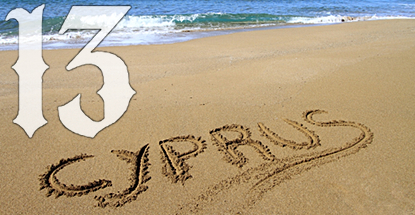The Greek-controlled southern half of Cyprus has announced that 13 companies have expressed interest in winning the right to operate a casino on its territory. Philippos Katrania, head of the government’s casino coordinating committee, announced the news on Tuesday. Katrania declined to offer up the identities of the baker’s dozen applicants, but in November, Caesars Entertainment confirmed that it was among those interested in the opportunity.
In the meantime, work continues on the country’s casino legislation. Lawmakers will begin discussions on the bill next Tuesday (20) and hope to have the bill approved by the end of January. Three weeks later, a tender will officially commence in which operators will be invited to reveal their proposals for what is expected to be a €500m project. The government expects the tender process will take an additional two months.
Constantinos Petrides, undersecretary to the president, warned legislators not to substantially divert from the bill’s original guidelines, which he said had been “painstakingly and expertly” drafted. As written, the bill calls for a venue with at least 100 gaming tables, 1k slots and 500 hotel rooms. Gaming revenue will be taxed at 15%, while annual license fees will start at €2.5m for the first four years, rising to €5m for the following four. The operator will be allowed to select the location of the project and will also be allowed to open several smaller slots-only venues in other locations on the island.
Meanwhile, the Cyprus government has been forced to announce that no decision has been made on privatization of the state lottery. Local daily Phileleftheros had reported that the lottery was targeted as one of the state assets to be sold to help repay the €10b bailout Cyprus received from the European Union and the International Monetary Fund.
On Monday, a lottery department source told the Cyprus Mail that no cabinet decision had been made regarding the sale of the lottery. The lottery generated revenue of €22.3m in 2013 while operating expenses were just €1.05m. Over the past 25 years, the lottery has contributed over €600m to the government’s coffers.
